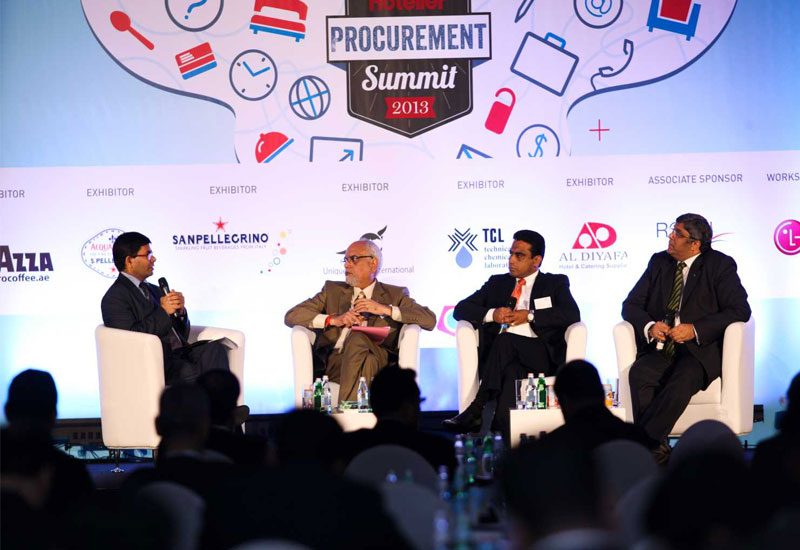Procurement professionals from hotels in the GCC will gather for the second Hotelier Middle East Procurement Summit to discuss the key topics in purchasing and the Middle East supply chain
The Hotelier Middle East Procurement Summit 2014, takes place this month on Tuesday November 4, 2014 at Ritz-Carlton, DIFC, Dubai with more than 100 purchasing managers and suppliers in attendance.
This year’s event will be sponsored by Associate Sponsor A. Ronai, Official Water Sponsor Horeca/ Aqua Panna & San Pellegrino and exhibitors Pulsar Foodstuff Trading/Gourmet Olive Market, Lavazza/Eurocoffee, Ruud Lighting, Unique Precise and Sun & Shades. Procurement professionals will have plenty of opportunities to meet and network with them at the event.

| Advertisement |
Last year’s inaugural Hotelier Middle East Procurement Summit attracted more than 120 purchasing professionals, with key topics on the agenda business development, e-procurement and value over price.
The day saw an assortment of purchasing experts host a series of panel discussions and workshops on a range of topics such as international best practices, brand standards, people management and digital purchasing systems.
This year’s event will follow a similar format, with topics updated to reflect current trends in purchasing, and some of the issues raised at a recent roundtable conducted at the Hotelier headquarters highlighted.
The pre-event discussion between Bhanu Pratap Singh, director of procurement, Atlantis The Palm, Madhu Gopal, director of procurement, Anantara Hotels & Resorts Abu Dhabi, and Wissam El Cheikh Hassan, managing partner at Al Dar Sweets — all of whom spoke at last year’s event — identified some new, key issues.
These included a call for more efficient and transparent processes as well as collaboration between hoteliers, and the issues encountered between F&B departments and purchasing departments within hotels, when quality and business needs clash. The need for more autonomy for purchasing managers, however, was one of the major topics that came to the fore.
“The purchasing managers in this region don’t have any authority — how are we going to make people understand what we are paid for? Most of these people are not even allowed to question. Instead of being instructed to just go and buy something, we can question this saying ‘so why are we getting it at this rate when we can get this price?’ So that is not there at the moment,” said Gopal.
Article continues on next page ...









 Search our database of more than 2,700 industry companies
Search our database of more than 2,700 industry companies









